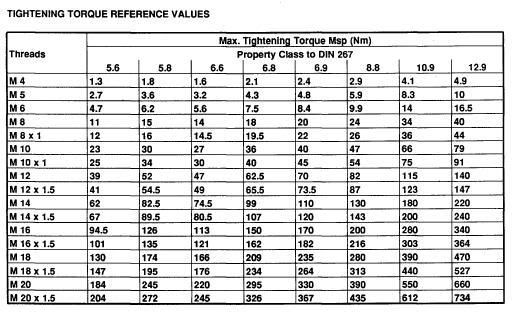blackarrow
Well-known member
The last torque wrench I used years ago was well worn and was not very good to begin with. It was the type which had a pointer to indicate the torque force on a scale by the handle. I never really trusted it.
Having just ordered sliders it is as good as time as any to invest in a new torque wrench. I want to tighten things down to spec, and anyway the soft alloys on bikes have always made me a bundle of nerves, living in constant fear of stripping threads.
I would appreciate recommendations on torque wrenches; types, sizes, capacities, and brand names to trust and avoid.
Thanks in Advance.
Having just ordered sliders it is as good as time as any to invest in a new torque wrench. I want to tighten things down to spec, and anyway the soft alloys on bikes have always made me a bundle of nerves, living in constant fear of stripping threads.
I would appreciate recommendations on torque wrenches; types, sizes, capacities, and brand names to trust and avoid.
Thanks in Advance.




